Life is alive, eat and drink the word.
When the Chinese went abroad, they talked the most about eating habits and food safety.
But in terms of food safety, Australia has a lot to say.
What are the aspects of food safety in Australia? I live in Australia today to show you.
The vegetables in the supermarket don't need washing.
In Australia you can often see foreigners go to the supermarket at noon to buy a bag of lettuce or mixed Vegetables Salad, open and eat directly.
At first I would have made a fuss and asked them why they didn't wash it? Instead, they find it strange: why wash it?
I'm going to explain that because there's a pesticide and a fertilizer on this vegetable, it's a chemical. It must be washed before the entrance! The old friend laughed and said, ""The raw vegetables sold in such a supermarket can be eaten directly at the entrance, which is the standard of the supermarket. It is absolutely free to have any harmful substances. Don't worry about it."
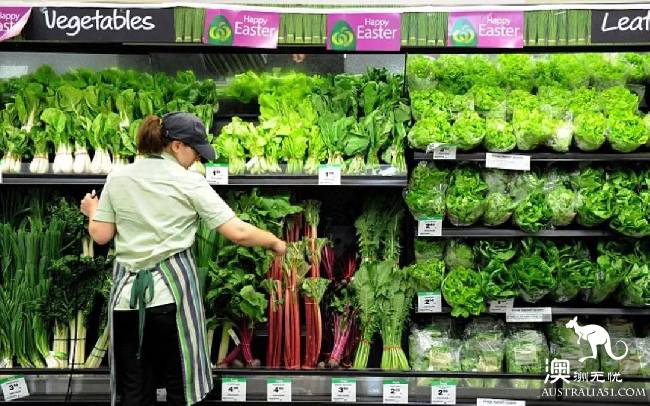
The kitchen of the restaurant is not mysterious
When it comes to the dining room's kitchen, one thing I've heard before: if you want to eat this meal, don't go to the kitchen.
There is no such thing as this in Australia, and I don't know if it's a design problem or what. Many Australian restaurants have bathrooms behind the kitchen, which means that if you want to go to the bathroom, you have to go through the kitchen.
I've been through the kitchens of a lot of restaurants. They're very clean, neat, and there's no smell. Everyone in the kitchen has a uniform dress, much cleaner than expected. At first I was embarrassed to look straight, then every time after carefully looked, no slot throughout, eat more at ease.
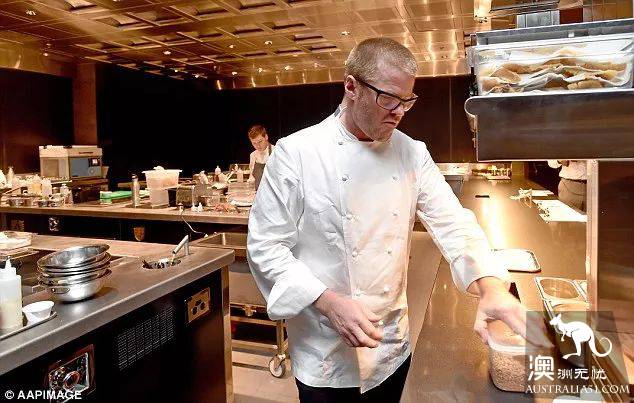
There is direct drinking water in the faucet
In Australia, almost all water can be consumed directly. In some remote places, if the water can not be drunk, there will be a clear sign, usually thirsty on the cup directly in the faucet to drink, outdoor also have a lot of direct drinking faucets, the water is touching.
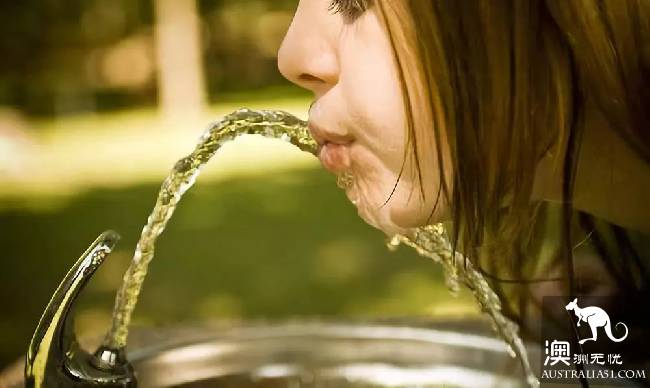
4 seafood can also be imported directly
The Chinese who had been to Sydney's seafood market should have seen the scene, and a dozen oysters bigger than their fists took them over, squeezed some lemon juice and ate them directly.
Oysters and salmon are eaten like this, even prawns are eaten raw. When I began to worry about eating something bad, a friend accompanying me said: "if you really eat something bad in Australia like winning the lottery, the seller who caused you to eat something bad can pay you a set of house money, and you will definitely be fined heavily!"
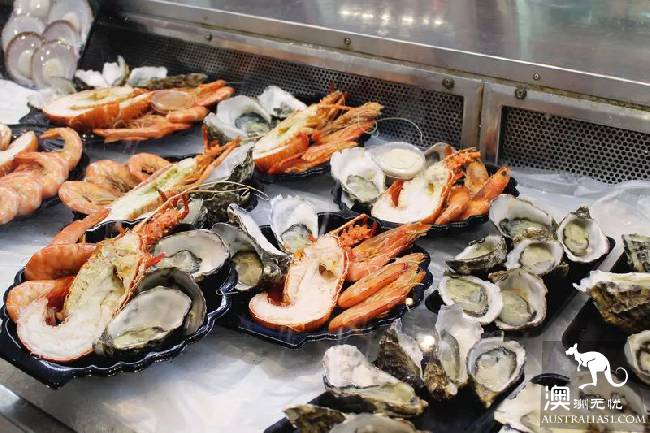
All imported foodstuffs must use a detailed composition list
Overseas Chinese are still inseparable from our favorite foods and seasonings, such as the following: Lao Gan Ma, mash, wine, soy sauce, octagonal, southern milk.
Every imported food must have this translated label on it, otherwise it cannot be sold on the Australian market. The contents of these small labels will be tested by independent third parties and will not be sold until they are fully qualified.
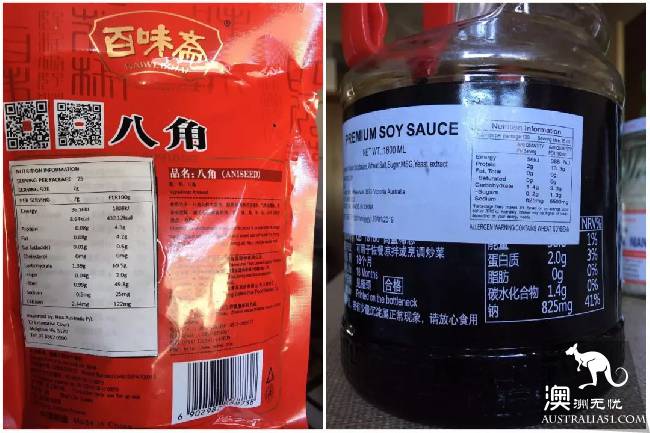
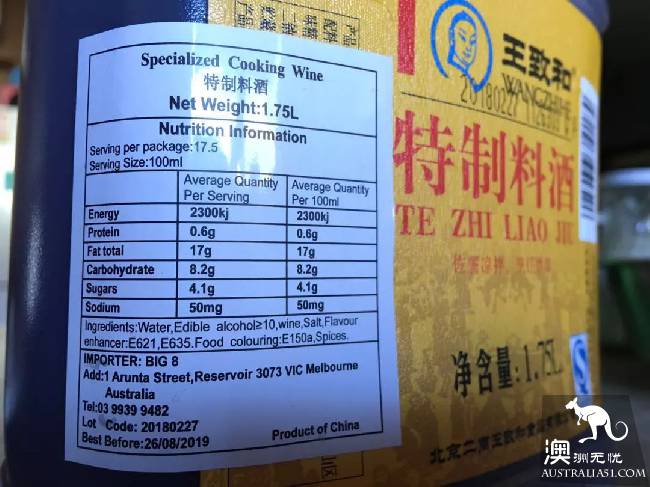
What has Australia done to ensure food safety?
Food safety control in Australia starts with the soil.
My friend's company is in forest management, and the chemicals used in each of the processes during the decades-long tree growth cycle need to be documented in detail. The time and space of the operation and the quantity of various chemicals are accurate to grams.
This is to achieve industry certification, all companies must meet these requirements, if not reach the requirements, will lose certification, products in the market will not be recognized by consumers, resulting in direct economic losses.
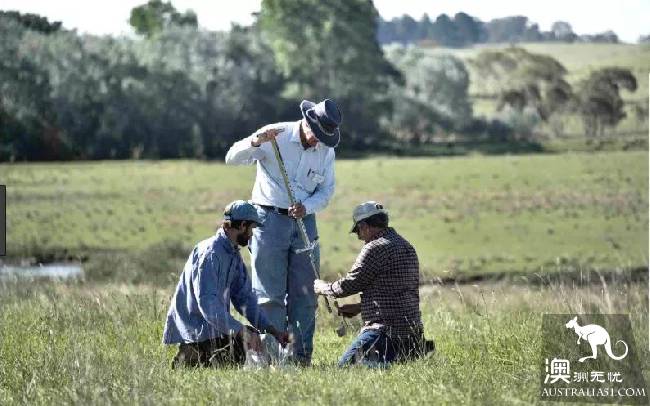
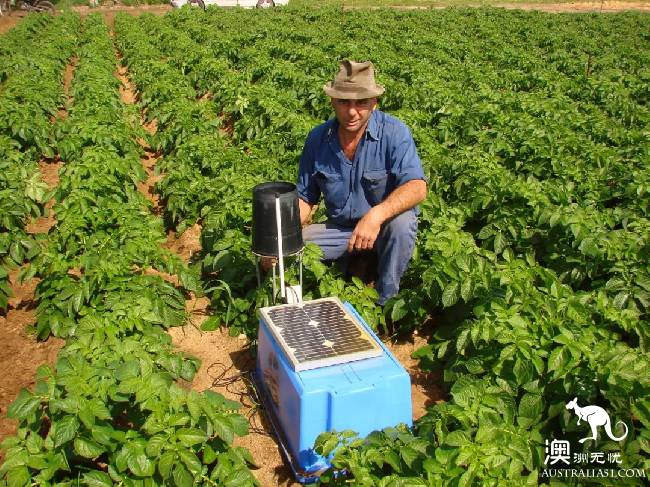
The food standardization campaign began 113 years ago
Australia declared independence on January 1, 1901, ending British colonial rule. Four years later, in 1905, Australia enacted the Victorian Pure Food Act (Victoria Pure Food Act 1905 No.2010), which was the first relatively comprehensive food law.
After nearly 100 years of development, the Australian-New Zealand Alimentarius Code was promulgated in December 2000 and fully implemented in December 2002. The name of the code shows that it applies not only to Australia, but also to New Zealand.
Especially worth mentioning is Australia's dairy products, the dairy industry has an important position in Australia, and has a long history, currently produces about 10 billion liters of milk per year, and the safety level has reached the highest standards in the world. Even referred to as the "golden milk belt," the strict control of dairy products can be described by the word "harsh". To ensure that every drop of milk is the world's top quality, Australia's government has developed a number of regulatory systems for dairy products, which have been among the world's leading levels.
Dairy products are picked up from the grass of the ranch. The pasture in Australia is usually mixed with red and white clover seeds and ryegrass seeds. This method enables the pasture to grow in a balanced manner throughout the year, and fully satisfies the demand of cow herbivores. The results are as follows: (1) the ryegrass in Australian pastures is usually mixed with red and white clover seeds and ryegrass seeds. Herbage eaten by cattle absolutely banned herbicides and insecticides, effectively preventing toxic chemicals from soaking into the soil, entering the food chain, and eventually causing physical damage to people who eat dairy products.
For dairy products exported abroad, each can is required to be sent to an independent third-party laboratory in Australia for monitoring before it passes. All of this can be traced back to the entire supply chain, from dairy farms to consumers, so it can be said to be very safe, transparent and full of sense of security.
Control the entry of pollution sources
Australia's food source is divided into import and local production, and the regulation of imported food is very strict.
When you enter Australia, you have to declare all your food and plant seeds with you. It's often a surprise to Chinese who visit Australia for the first time. We Chinese are used to taking some food with us wherever we go, traveling or studying, and we always bring some home flavor, but when we come to Australia, we really have to give up these things, but local Chinese supermarkets can basically buy them.
First of all, meat is absolutely not allowed to be brought into Australia. These foods also include dairy products, food containing eggs, vegetables and fruits, nuts, seeds, and so on. In the event of an unreported concealment, they will not only be confiscated on the spot. There will also be fines ranging from $220 to $65,999 and even more severely jailed.
The National Code of Safety for Dairy products, implemented in partnership with Australian federal and local supervisory bodies, farmers and Australian dairy organizations, provides detailed guidelines and guidelines for every step of the way before milk is consumed. For example, before cattle enter farms, they must ensure their health, clean pastures and water, complete the installation of feeding and irrigation systems, and obtain operational qualifications issued by the local food safety agency.
What is the price of violation?
Australia's food regulations are unambiguous at the enforcement level, and all penalties are clear, and businesses will soon be investigated for violations and high-cost fines will be received.
In the city of Rockingha, in Perth, Western Australia, a $200,000 ticket to McDonald's has been issued to McDonald's! The reason was that in the McDonald's, there was a violation of the food storage standards, the store's clean regulations, followed by the "feeding of animals and pets" in the store.
This is an example of Australia's extremely high standards of food safety, and skyrocketing fines send a clear message to Australian society: a zero-tolerance approach to any food safety issue.
Mike Daube, a professor of health policy at (Curtin University) University at Curtin University, once said: "Food safety says public health is at the heart of public health, and all restaurant operators must understand that their priority is to ensure the safety of consumers. Anyone who violates the rules, especially those who do not change, will pay a heavy price for the act of treating consumer life as a playful act. "
So, in Australia, food is really safe, just eat it at ease!